Brazilian artist Adriana Varejão uses her sculptural work Meat Ruins to hold space for the memory of Brazil’s deeply violent colonial past. These are a series of sculptures in the form of architectural columns that weld elements of colonial Brazilian architecture with what appears to be human flesh.
Through Meat Ruins, Varejão reminds people of the human violence that has shaped Brazil’s identity today, reminding the people of Brazil to decolonize and celebrate their identities.
Meat Ruins is a tool for Brazilians to honour the strength of their ancestors and find similar vigour within themselves now. This is a force necessary to face a post-colonial world now reeling from the effects of colonization, with a new set of challenges. This makes her Meat Ruins reflect the United Nations Sustainable Development Goals of Reduced Inequalities.
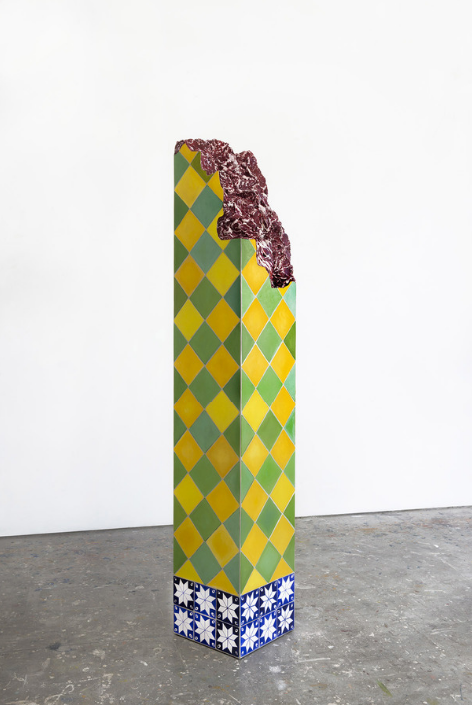
The columns of Meat Ruins are covered in glazed terracotta tiles called azulejos. These ornate tiles, adorned with geometric shapes, are of Arabic origins and have been widely used as architectural decor in Portugal since the Middle Ages. They were brought to Brazil through trade and Portuguese colonization, integrating themselves into local architecture ever since.
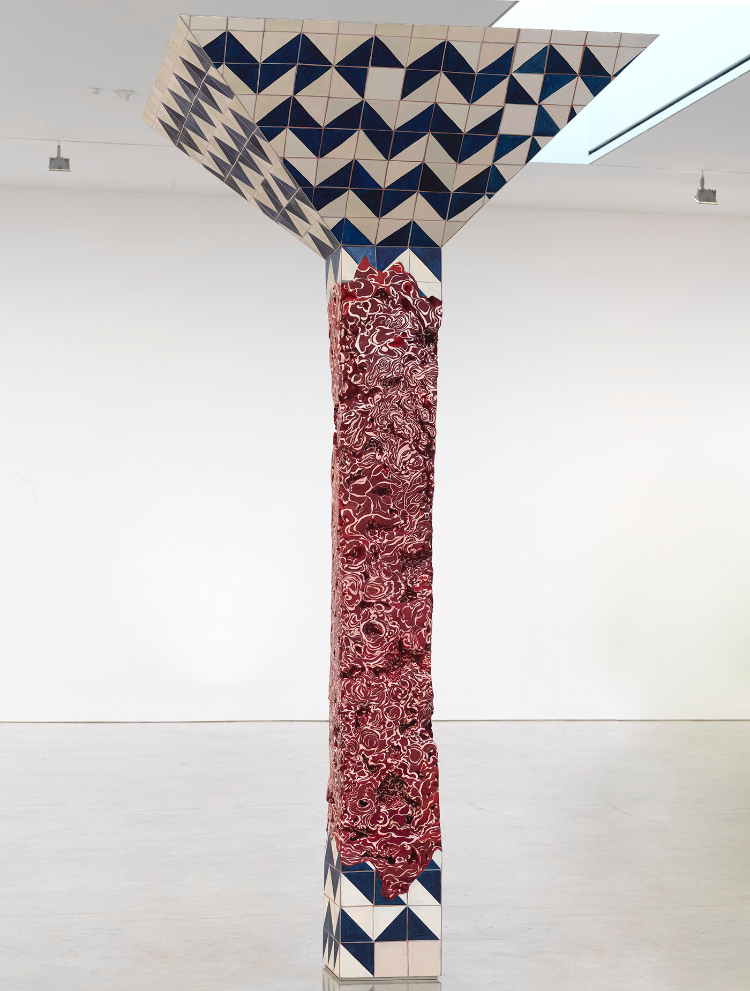
In one piece from the series, Ruína Brasilis (Brasilis Ruins), Varejão purposefully used azulejos that sport the colours of Brazil’s flag. Iconic shades of green, blue and yellow that have come to define the nation globally.
By pasting them onto architectural columns, Varejão uses them as symbols of the nation’s supporting structures. This allows Varejão to question how colonial influences have come to support the structure of Brazil’s current socio-political landscape.
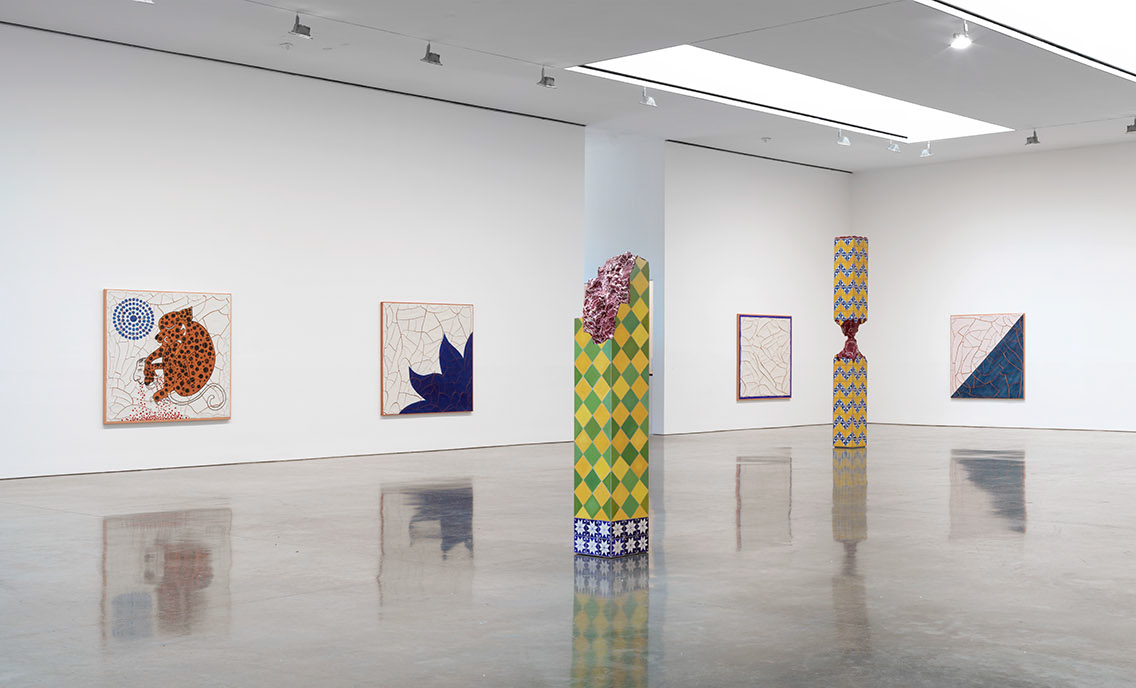
As the series’ title suggests, the columns of Meat Ruins stand in decay. As if whatever structure they were supporting was long gone, succumbed to age, or worse, to destructive human activity.
One of the Meat Ruins even explicitly alludes to destructive human activity by resembling an axed tree stump. It has been chopped all around and now stands precariously, as if a single gust of wind could bring the whole structure down any minute.
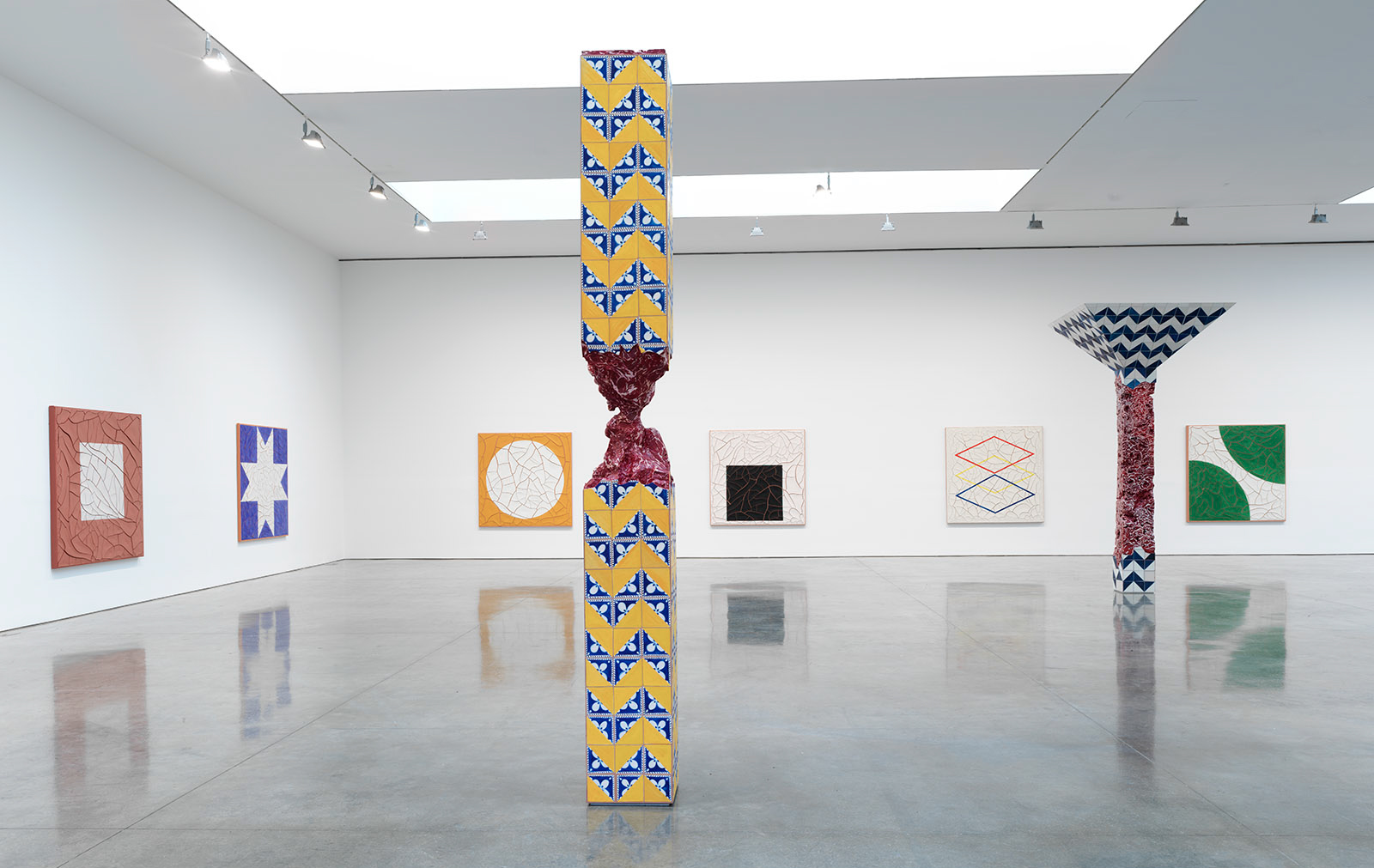
Inside these columns, viewers of Varejão’s pieces will not find steel and concrete, but flesh and sinew, a symbol of the flesh and blood, real people who have decolonized Brazil. By portraying the columns in a state of decay, Varejão wishes to remind people of Brazil's colonial past which officially ended in 1822 when it became an independent nation. However, different authoritarian regimes emerged during Brazil’s decolonization stage, meaning peace did not materialize until the 1980s when Brazil finally became a democratic state.
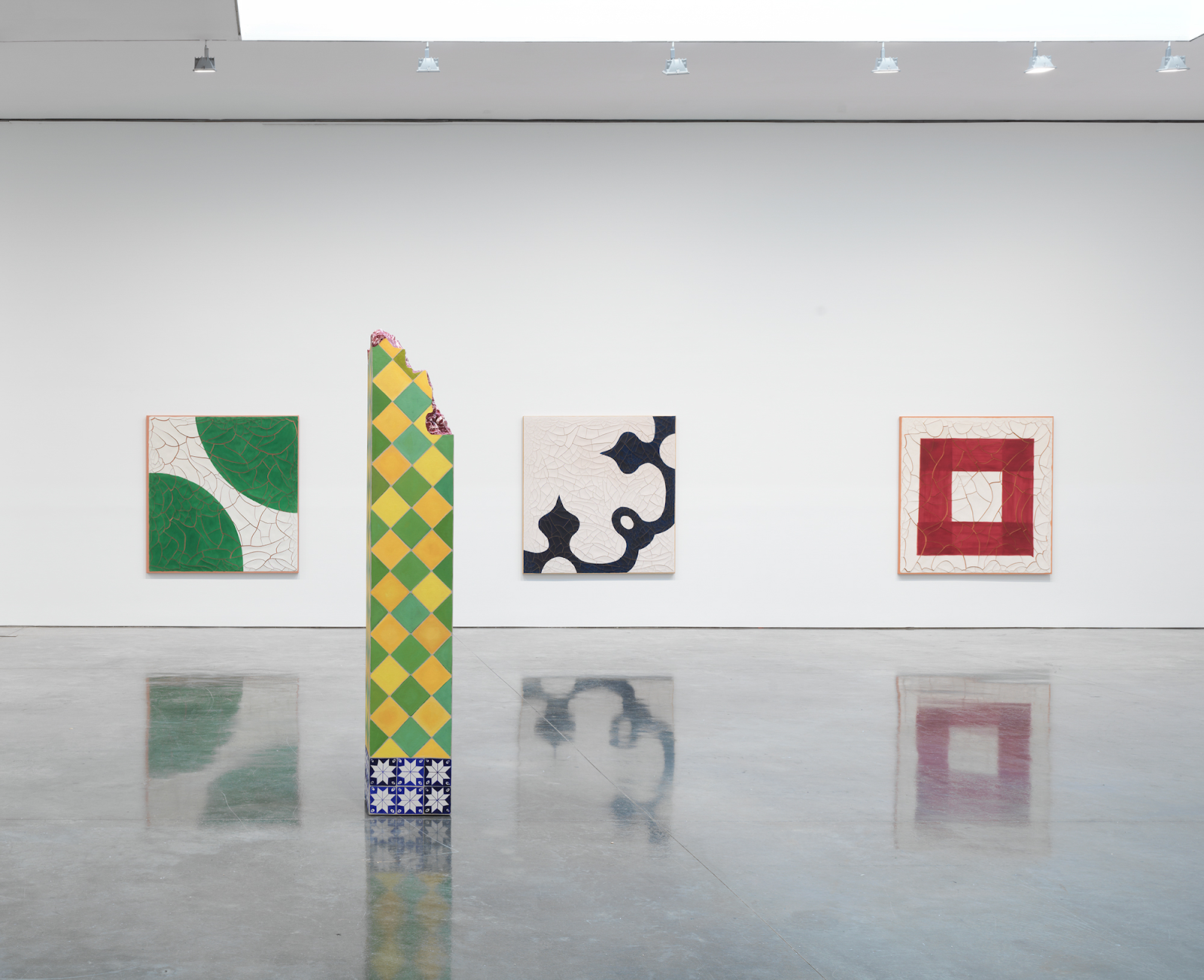
This authoritarian past is precisely what the Meat Ruins caution against, reminding Brazilians that decolonization is a slippery slope. These pieces assert that Brazilians must remain vigilant in guarding their freedom from oppressive forces, no matter whether they be internal or external, to avoid history repeating itself.
The subject of Adriana Varejão's remains relevant. From 2019 until the start of 2023, former president of Brazil Jair Bolsonaro ran a neoliberalist authoritarian regime. As of September 2025, Bolsonaro has been sentenced to more than 27 years for plotting a coup to maintain power after losing the 2022 Brazilian election.
Find out more about Adriana Varejão’s Meat Ruins and their other pieces by checking their Instagram on @adrianavarejao.
